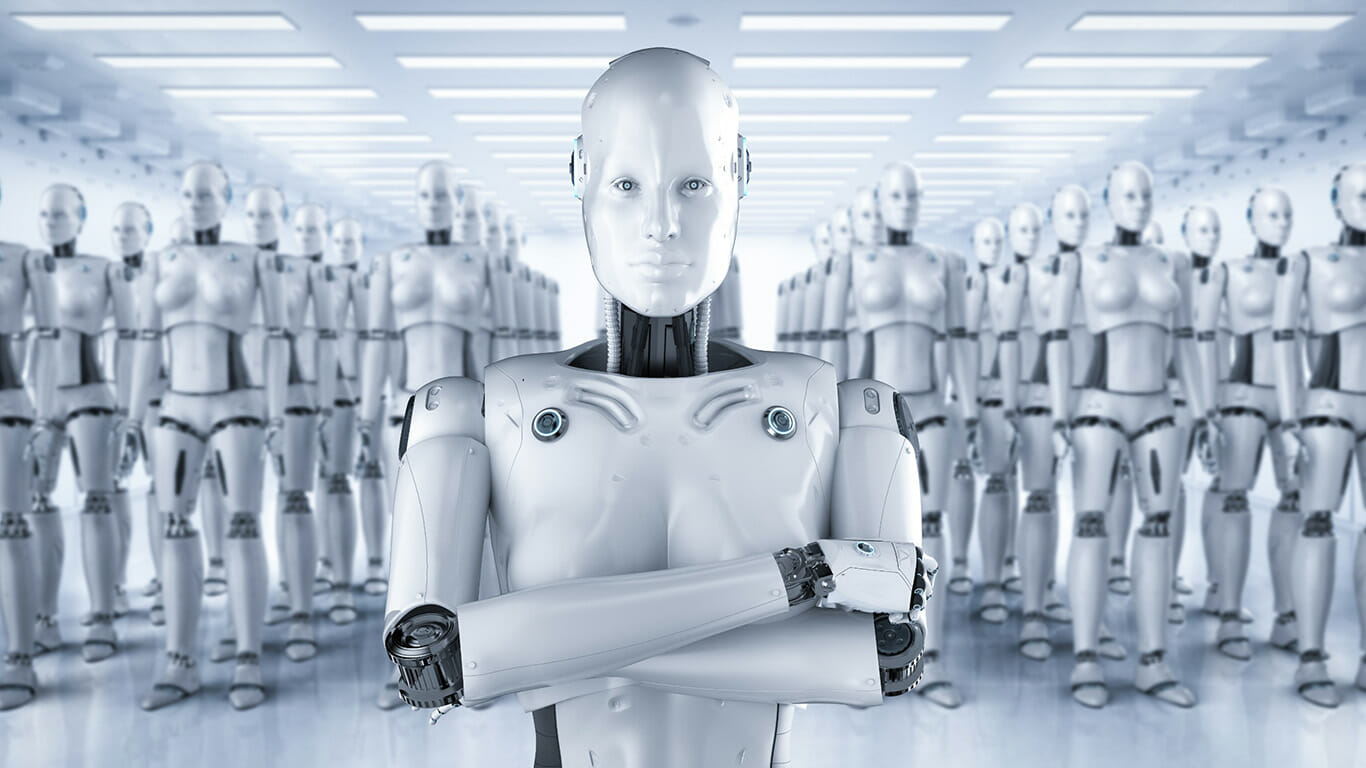Members of SAG-AFTRA and the Writers Guild of America have joined forces for the first time since 1960 to strike against large Hollywood studios. Part of it is due to the threat of AI in Hollywood.
Essentially, they’re asking for more base pay, profits from TV shows and movies that appear on streaming services and safeguards against artificial intelligence.
LEARN MORE: Here are the jobs in Phoenix most threatened by AI
The latter they fear might keep them from gainful employment and could collapse the entire entertainment industry.
“It’s probably the most difficult time we’ve had because of AI and because of the understanding of how producers are actually handling this and saying we’re going to hold out until people lose their homes,” actor Edward James Olmos said to a reporter from ABC7 Los Angeles. “That I thought was very, very crude.”
With computer-generated imagery, blue- and green-screen technology, volumetric capture labs and digital avatars, Hollywood has been able to cheat on screen for some time. But with the evolution of AI, Hollywood actors and screenwriters dread they may no longer be needed.
That unease is warranted, said David Franklyn, executive director of The McCarthy Institute in ASU’s Beus Center for Law and Society.
The institute, a joint program with Arizona State University’s Sandra Day O’Connor College of Law, conducts regular symposiums, workshops and networking groups, and pursues original IP and branding research and scholarship.

ASU News spoke with Franklyn about how AI has precedence in film and television, and how it could irreparably harm Hollywood.
Editor’s note: Answers have been edited for length and clarity.
Question: To what extent does this current situation have precursors, and what about this dispute is new?
Answer: The current AI situation has precursors in IP legal history but nothing on par with the scale or threat interposed by the current incredibly rapid development of AI. Looking back a bit, one can think of a few examples.
My mind goes back aways to the “Back to the Future” controversy where Universal made a mold of Crispin Glover’s face and had an another actor replace him when he demanded $1 million to reprise his role. Before that, in 1970, filmmakers created a boxing match between Muhammad Ali and Rocky Marciano called “The Super Fight,” perhaps using a form of AI. And then there’s 1994’s “Forest Gump,” which melded historical figures into a fictional screenplay.
While AI is not unprecedented in this area, the scale of what we’re talking about is much larger now. Current AI technology is capable of scanning the internet to find relevant existing works, utilizing bits and pieces of these works, amalgamating them into new forms that barely conjure up the originals to the naked eye, and yet clearly incorporate the intellectual property of others. The potential for widespread infringement is in fact unprecedented.
Q: Are writers’ and actors’ concerns about being displaced by AI legitimate or misplaced?
A: It’s probably a real threat to them, especially for writers. Current AI is capable of writing better scripts, better novels, better almost anything than humans can write. Acting is a little bit different because the personality and physical presence of the human actor has historically been a vital part of a performance as it is experienced by consumers. While AI can replicate human acting, it cannot do such a great job of convincing us that an AI-generated character is in fact a human actor. I am not convinced that actors face the same threat from AI as writers, as of now.
Q: What is the exact nature of the threat? Specifically, how could AI replace a writer or actor?
A: As I mentioned, It might be easier for AI to replace a writer than a screen actor. Personality and the role it plays as a human being would be tough (to replace). AI can use digital figures, but it’s not going to replace human actors. Even so, the threat is real, not imagined.
Q: Can’t SAG-AFTRA put some language and other safeguards in place to protect themselves from AI?
A: This is addressable with contract terminology (and) clauses, and is something for which compensation must be increased by pay or the piece of the profits. It is true that more compensation for writers and actors is not a panacea, nor is it clear that it will halt the displacing threat of AI. But it is a way for creative humans to assert their rights against an increasingly impersonal system.
Q: Can AI be used in a positive situation where artists have control of their work, and it benefits them and the public?
A: Yes. By no means is the advent of sophisticated AI all bad. For example, the Beatles are using AI to duplicate John Lennon’s voice for a new single they’ll introduce later this year. This is an exciting and fascinating use of AI. I expect others to increasingly follow this approach. But the key here is that the original IP owners are using AI to transform works. This is decidedly not the same as others using AI to transform the works of authors and actors without their permission and without providing them with compensation.




